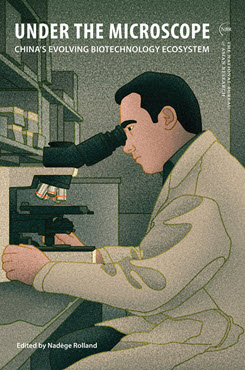Essay in NBR Special Report No. 114
Chinese Military Thinking at the Crossroads of Biological Security, Biotechnology, and Global Health
This essay examines People’s Liberation Army (PLA) thinking and activities at the intersection of biological security, biotechnology, and global health to better understand how these issues fit in China’s evolving military strategy.
EXECUTIVE SUMMARY
MAIN ARGUMENT
PLA sources view the biological domain as an increasingly important consideration for China’s national security objectives. With China’s enhanced military capabilities and growing desire for great-power status, the PLA will likely emphasize biotechnology and health diplomacy in its future military strategy. These PLA activities are also likely to support the Chinese Communist Party’s broader efforts to become a more engaged actor in global health.
POLICY IMPLICATIONS
- The U.S. should encourage greater collaboration between its national security and biotechnology communities that would allow them to exchange findings, share resources, and better understand the context behind the PLA’s goals for biotechnology.
-
The U.S. should enhance cooperation with its allies to monitor developments and increase awareness of PLA activities at the intersection of military strategy, global health, and biotechnology.
- The U.S. should consider increased interactions between the U.S. Department of Defense and the PLA to discuss global health issues.
- The U.S. should encourage future research on Chinese thinking on biological security and potential Chinese military applications of biotechnology.
Alexis Dale-Huang is a PhD student in Princeton University’s School of Public and International Affairs.
Nathan Beauchamp-Mustafagais a Senior Policy Researcher at the RAND Corporation.


